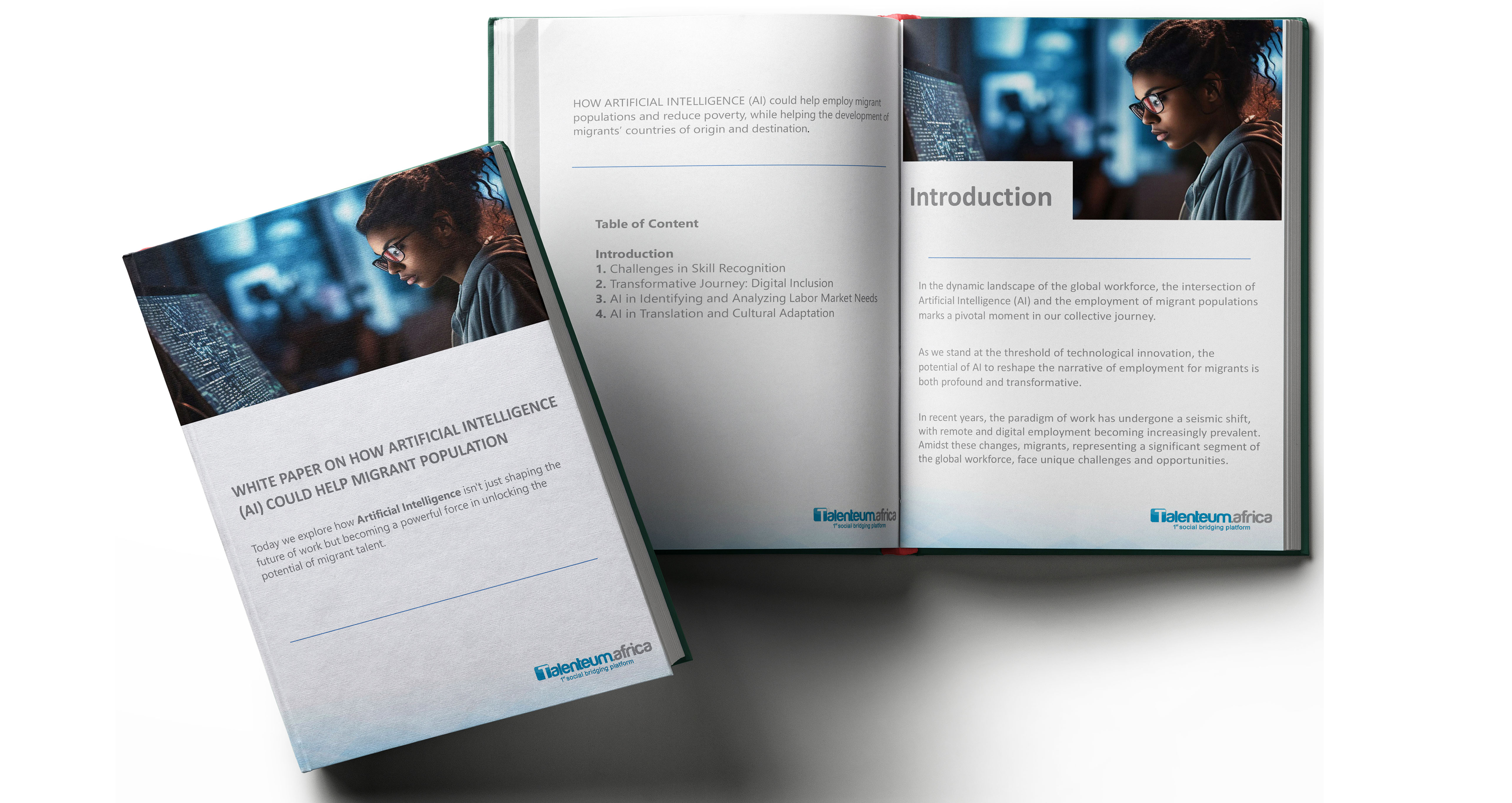Discover our White Paper on A.I on remote work for migrants
Let’s explore how Artificial Intelligence isn't just shaping the future of work but becoming a powerful force in unlocking the potential of migrant talent.
In the dynamic landscape of the global workforce, the intersection of Artificial Intelligence (AI) and the employment of migrant populations marks a pivotal moment in our collective journey. As we stand at the threshold of technological innovation, the potential of AI to reshape the narrative of employment for migrants is both profound and transformative.
In recent years, the paradigm of work has undergone a seismic shift, with remote and digital employment becoming increasingly pvalent. Amidst these changes, migrants, repsenting a significant segment of the global workforce, face unique challenges and opportunities.
Remote work, facilitated by technology, has the potential to bring about positive change for migrants from Africa in several ways:
Access to global job opportunities:
Remote work breaks down geographical barriers, allowing migrants from Africa to access job opportunities from around the world. This widens the scope of available roles and increases the chances of finding employment in sectors that may be thriving in other regions.
Skill development and upskilling:
Technology enables online education and training, offering migrants the chance to acquire new skills and enhance existing ones. This not only improves employability but also empowers individuals to contribute meaningfully to the digital economy.
Reduced reliance on physical psence:
Many traditional job roles require physical psence, making it challenging for migrants. Remote work, supported by technology, reduces the need for a physical psence, enabling individuals to contribute to projects and teams from anywhere in the world.
Entrepneurial Opportunities:
Technology has democratized entrepneurship. Migrants from Africa can leverage digital platforms to start and run their businesses, reaching a global audience. E-commerce, online services, and freelancing platforms offer a pathway for economic empowerment.
Community Building and Support:
Digital platforms enable migrants to connect with others who share similar experiences. Online communities and support networks can provide guidance, mentorship, and a sense of belonging, easing the challenges associated with migration.
Economic Inclusion:
Remote work can contribute to economic inclusion by providing opportunities for marginalized groups. By tapping into the global job market, migrants can overcome local employment challenges and contribute to their host countries and communities.
In summary, the convergence of remote work and technology has the potential to be a force for good, offering migrants from Africa new avenues for personal and professional growth, fostering economic inclusion, and creating a more connected and diverse global workforce.
Contact us to receive our White Paper.

